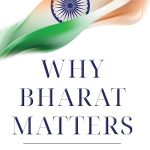Quick counts predict a clear victory for Probowo Subianto in the Indonesian Presidential elections. This article explores the efforts Probowo made to rebrand himself, his alliance with former rival Joko Widodo, and Indonesia’s future trajectory. This paper also highlights the implications of Prabowo’s victory, including questions on policy continuity and governance. While Prabowo’s military background suggests a focus on economic and military empowerment, uncertainties remain regarding his policy directions and potential challenges ahead.
Prabowo Subianto, the defence minister of Indonesia and a former general burdened by accusations of violating human rights, vowed to be leader for all Indonesians after unofficial counts indicated he was poised to win the nation’s presidential election (The Bali Times, 2024). ‘Quick Counts’ by independent pollsters based on sampling of polling stations have traditionally proven accurate (Reuters, 2024). It is important to note that in Indonesia, the process of power transition is slow. It will take the Election Commission up to a month to confirm the results. Prabowo’s two main rivals Anies Baswedan and Ganjar Pranowo, both former governors, have refused to accept loss and have advised supporters to hold off until the electoral commission’s final announcement (Al Jazeera, 2024).
Prabowo’s success came after multiple unsuccessful attempts in previous elections. Despite accusations of human rights abuses in his past (Karmini, N. & Tarigan, E., 2024), Prabowo successfully rebranded himself from the iron fisted populace to a ‘cuddly grandfather’ persona which resonated with voters particularly the younger demographics (Shyamsudin, A, 2023) . He has in fact been given the nickname ‘TikTok general’. A big part of his rebranding was his image of what is known as ‘gemoy’ which means cute (Barrett, C., 2024). Lot of animated images of him and his running mate, 36-year-old, Gibran Rakabuming Raka, were circulated in cartoonist avatars. Prabowo presented himself as the heir of Jokowi as the obvious continuation of Jokowi’s regime. His campaign was successful particularly among the Gen Z.
Prabowo is a blue blood, who comes from a very established political family with sizable economic fortune. He joined the military and eventually became the head of the Special Forces and the Jakarta Special Command, two incredibly important military positions, at a time when the military was the most powerful institution. In the meantime, he married the daughter of dictator Suharto (The Jakarta Post, 2024). Prabowo was on track to be a potential successor of President Suharto. However, in 1998 his plans were thwarted by the democratic revolution and he moved into electoral politics. He ran against President Joko Widodo (Jokowi) in 2014 and 2019 with intense polarising campaigns (Aspinall, Edward, 2023). Interestingly, in the last five years, a remarkable reconciliation occurred between President Jokowi and Prabowo such that he has been a sitting defence minister.
Despite being bitter political rivals in previous elections, Jokowi many times extended an olive branch to Prabowo to bring him on board and in 2019 it worked when he joined as coalition partner. Prabowo and Jokowi formed a surprising alliance for the 2024 election (Mathai, A. & Sood, A. 2024). This alliance was partly motivated by political dynamics within their respective parties and the broader political landscape in Indonesia. Jokowi’s support and endorsement significantly boosted Prabowo’s chances of winning the election. Jokowi was adept at coalition politics, successfully bringing together his opponents to garner support from over 80% of MPs during his last term in office. This strategy helped to minimise political tensions and facilitated the implementation of his ambitious infrastructure projects. However, critics argue that it led to a state of “opposition-less politics”, where there was little challenge to the government’s agenda (Harding, B & Searight, A. 2019). The question now arises whether Mr. Prabowo, who may be less inclined to adopt such an approach, will pursue a similar “big tent” strategy in governance.
While he may continue some of Jokowi’s policies to maintain popularity, there are concerns about his commitment to democratic norms and human rights, given his past record. Probowo knows that continuing with Jokowi’s legacy actually wins him a lot of popularity. He, however, has a mixed record in some ways. Take for instance his earlier stand on relationship with foreigners taking resources, this time he has been happy to remain quiet on the subject. He is pragmatically aligned to the old Prabowo personality of nationalisation of state and beware of foreigners etc. Looking ahead, there are questions about Prabowo’s governance style and policy agenda. While he may continue some of Jokowi’s policies to maintain popularity, concerns remain about his commitment to democratic norms and human rights, given his past record.
Work Cited:
Aspinall, Edward (20 December 2023). Indonesia’s election bears the signs of weakening democracy. Australian National University Coral Bell School of Asia Pacific Affairs. Retrieved from https://reporter.anu.edu.au/all-stories/indonesias-election-bears-the-signs-of-weakening-democracy
Al Jazeera (14 February 2024). Indonesia election results updates: Prabowo claims presidential race win. Retrieved from https://www.aljazeera.com/news/liveblog/2024/2/14/indonesia-election-results-live-quick-counts-start-for-jokowi-successor
Barrett, Chris (8 January 2024). Ex-general with dark history reinvents himself for TikTok generation. The Sunday Morning Herald. Retrieved from https://www.smh.com.au/world/asia/ex-general-with-dark-history-reinvents-himself-for-tiktok-generation-20240105-p5evbs.html
Harding, B & Searight, A. (18 October 2019). Jokowi 2.0: Policy, Politics, and Prospects for Reform. Center for Strategic and International Studies. Retrieved from https://www.csis.org/analysis/jokowi-20-policy-politics-and-prospects-reform
Karmini, N. & Tarigan, E. (14 February 2024). Former Indonesian general linked to human rights abuses claims victory in the presidential election. The Washington Post. Retrieved from https://www.washingtonpost.com/world/2024/02/13/indonesia-presidential-election-voting/dabd3f16-ca98-11ee-aa8e-1e5794a4b2d6_story.html
Reuters (14 February 2024). Unofficial vote counts in Indonesia presidential election. Retrieved from https://www.reuters.com/world/asia-pacific/indonesia-presidential-election-unofficial-vote-counts-2024-02-14/
The Bali Times. (15 February 2024). Prabowo Vows to Be President for All Citizens in Victory Speech. Retrieved from https://www.thebalitimes.com/headlines/prabowo-vows-to-be-president-for-all-citizens-in-victory-speech/
The Jakarta Post (2023). Election 2024: Candidate profile: Prabowo Subianto. Retrieved from https://www.thejakartapost.com/indonesia/2023/11/24/candidate-profile-prabowo-subianto.html
Mathai, A. & Sood, A. (15 February 2024) Indonesia election 2024: is Prabowo Subianto a ‘wild card’ with a nationalistic agenda? South China Morning Post. Retrieved from https://www.scmp.com/week-asia/politics/article/3252003/indonesia-2024-election-prabowo-subianto-wild-card-nationalistic-agenda













